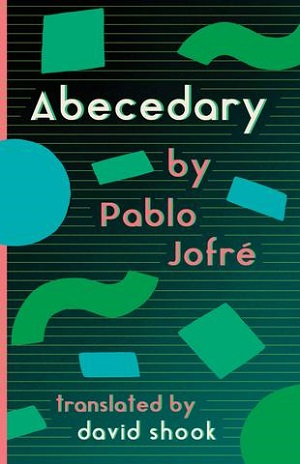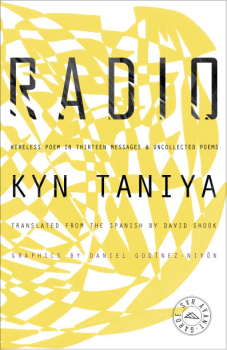
Translated by David Shook
I think it is fair to say that wholeness, or, more specifically, a lack thereof, is part of the fabled “human condition.” I do not and will never claim to be the most experienced person in the world, but I also do not believe that I have ever known someone who feels complete. Truly complete, that is. To be clear, I do not mean content or happy – you can be either or both of those things and still possess unfulfilled desires, relegated aspirations, or even loneliness. Some of this, I think, does come from a very healthy and important drive in the mind to seek out challenge and stimulation. But it is long overdue that we acknowledge how much of our incompleteness, on a personal level, is imposed upon us. It is in this context that cannot help but consider Room in Rome, a collection of poetry by Jorge Eduardo Eielson. Again, in the interest of clarity, Eielson’s text is not preaching from the soapbox. There is nothing inherently wrong with preaching, but Room in Rome is using an alternative approach; an exercise in unstoppable serenity, an embracing of empathy with infinite momentum.
The imposition at play in Eielson’s poetry is the child and tool of society and culture. As far as I could tell, every single poem in this collection dealt with identity on some level, and specifically with the forces that either try to insidiously manipulate the self-image or try to crush it under their bloated gaits. Eielson, himself Peruvian and Swedish, two ethnic and cultural heritages that are themselves the results of centuries of war, colonization, immigration, and exchange, writes from a largely first person perspective as he has quite literally been transplanted to Rome. Poem after poem deals with expectations placed upon him, upon his neighbors and friends and strangers, and trying to find the sources of those expectations. Governments, patriarchy, the Catholic church, capitalism, and more appear as forces wielding boundaries and arbitrary labels as weapons to be bolted onto people, as if being branded in ownership is somehow going to lead to fulfillment. For all of its beautiful harmony as a text, Room in Rome is a scathing indictment of in-group favoritism and gatekeeping, and likely all the more beautiful for it.
el corazón / de esta ciudad que es tu cuerpo / y es el mío / nuestro cuerpo / y nuestro río / nuestra iglesia / y nuestro abismo?
the heart / of this city which is your body / and is mine / our body / and our river / our church / and our abyss?
In my last review, of Don Mee Choi’s essay on translation, “Translation is a Mode = Translation is an Anti-neocolonial Mode”, I remarked on how much joy I found in Choi’s essay writing style as it broke many of the dry as sepulchral dust rules that they warn you about in school. Now, I find myself wonderfully blindsided by this novelty again in Eielson’s poetry. We are no strangers to experimental poetry, and I would say that, by modern standards, Eielson isn’t doing anything groundbreaking. It is, instead, in simplicity that he expresses himself. There are spots where he puts his line breaks in the middle of words or phrases. I can already hear my professors (and even some of my understandably wary peers) cringing at the thought, but it is handled beautifully here. It contributes to the theme of incompleteness central to the work. The poems, while not consistent in their length or structure, somehow all have this snowball effect, building a downhill momentum as the language encourages its own flow. All the while, the speaker seems to float next to you, not so much detached as particularly of aware that they are both connected and an individual.
This type of delivery, that serenity in the face of chaos, is something that particularly appeals to me, largely because I find it seems to incredibly difficult to achieve. It is one thing to try and block out emotion (or appear to block out emotion) and appear dispassionate. It is altogether another to not judge yourself for having emotions, to achieve a kind of harmony by embracing yourself and the chaos and understanding your relationship to it. Too often we fetishize detachment as some idealized state of being, driven by those who would benefit from us denying our own humanity. You can feel the pain in the speaker’s voice when he speaks of things turning to ash before him. You can taste the intensity and ache of his love when remembers lost loves in ancient city. He recognizes these things as part of himself.
¿cuánto tiempo ha pasado desde entonces / cuántas horas / cuántos siglos he dormido sin contemplarte?
how much time has passed since then / how many hours / how many centuries have I slept without contemplating you?
For those of you familiar with work translated from Spanish to English, it should come as no surprise that David Shook is in top form here. The English versions of each poem are not only effectively accurate but they are almost as much of a joy to read as the original Spanish. None of Eielson’s message or emotion seem to be lost and Shook handles Eielson’s style wonderfully. And, corny though it may be, I cannot help but see this reinforce the search for identity throughout the text.
When I write these reviews, my goal is to express the kind of intellectual and emotional engagement that I experience, not to suggest how you should feel about a text, but to encourage you to find your own experience with it. They are suggestions, however emphatic, that the texts I am discussing will bring you the challenge and stimulation that I think the overwhelming majority of us seek. This goal, I think, is partially why Room in Rome had such an effect on me and I why I write about it now. Eielson is gently and firmly reminding you to find yourself, to be aware when other forces are trying to dominate your perspective or infiltrate theirs under the guise of your own. You can be a child of contradictions, of many names, of myriad complexity, and still be an identifiable you.
Room in Rome is available now through Cardboard House Press.

 Abecedary
Abecedary Confetti-Ash, Selected Poems of Salvador Novo
Confetti-Ash, Selected Poems of Salvador Novo